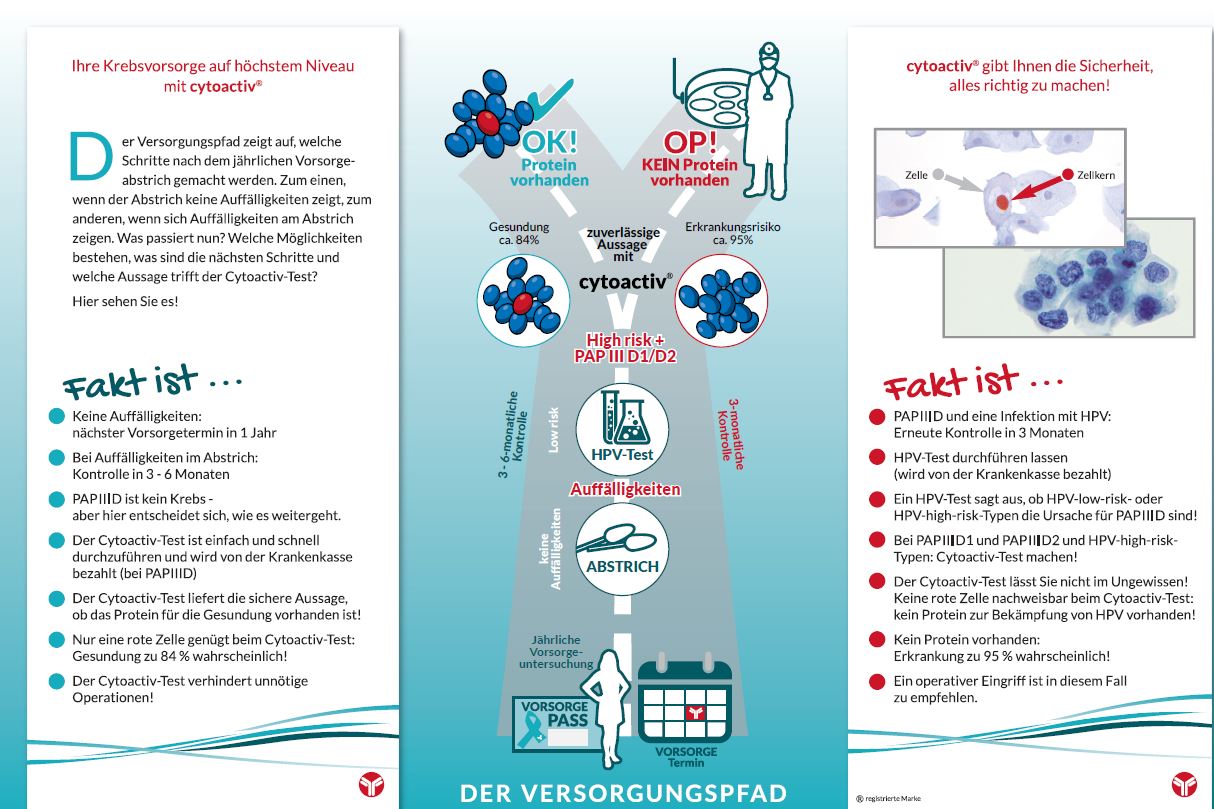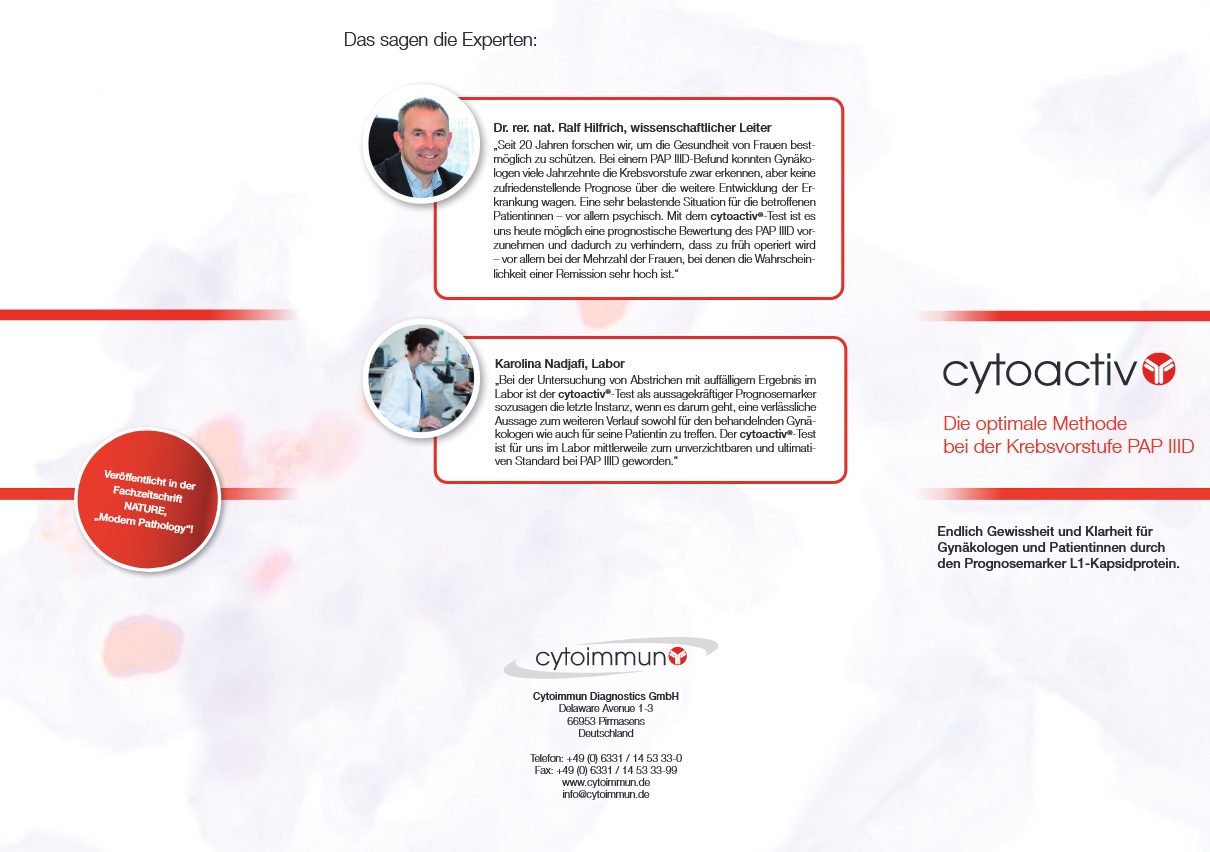cytoactiv® Test
Rapid clarity: The cytoactiv® test detects the L1 capsid protein in the nucleus of cells infected by human papillomavirus.
It’s great to see red!
If the test shows red-stained cells, the L1 capsid protein is present and the immune system is fighting the altered cells. Cure is very likely (80%).
If the L1 capsid protein cannot be detected, the disease is likely progressing and therapy must be initiated.
The latest studies show that the cytoactiv® test can provide an accurate prognosis of the direction in which dysplasia will develop.
INFO: The high-risk types of human papillomaviruses are responsible for cell changes in the cervix that can develop into cervical cancer if left untreated. Cervical cancer is the second most common cancer in women worldwide.
How does the test work?
The cytoactiv® test detects a specific protein, the L1 capsid protein, which plays a key role in fighting HPV infection. If the cytoactiv® test shows at least one red-stained cell within the smear, the characteristic protein for self-healing is present. This protein ensures that the body successfully defends itself against the human papillomaviruses and is very likely to recover.




